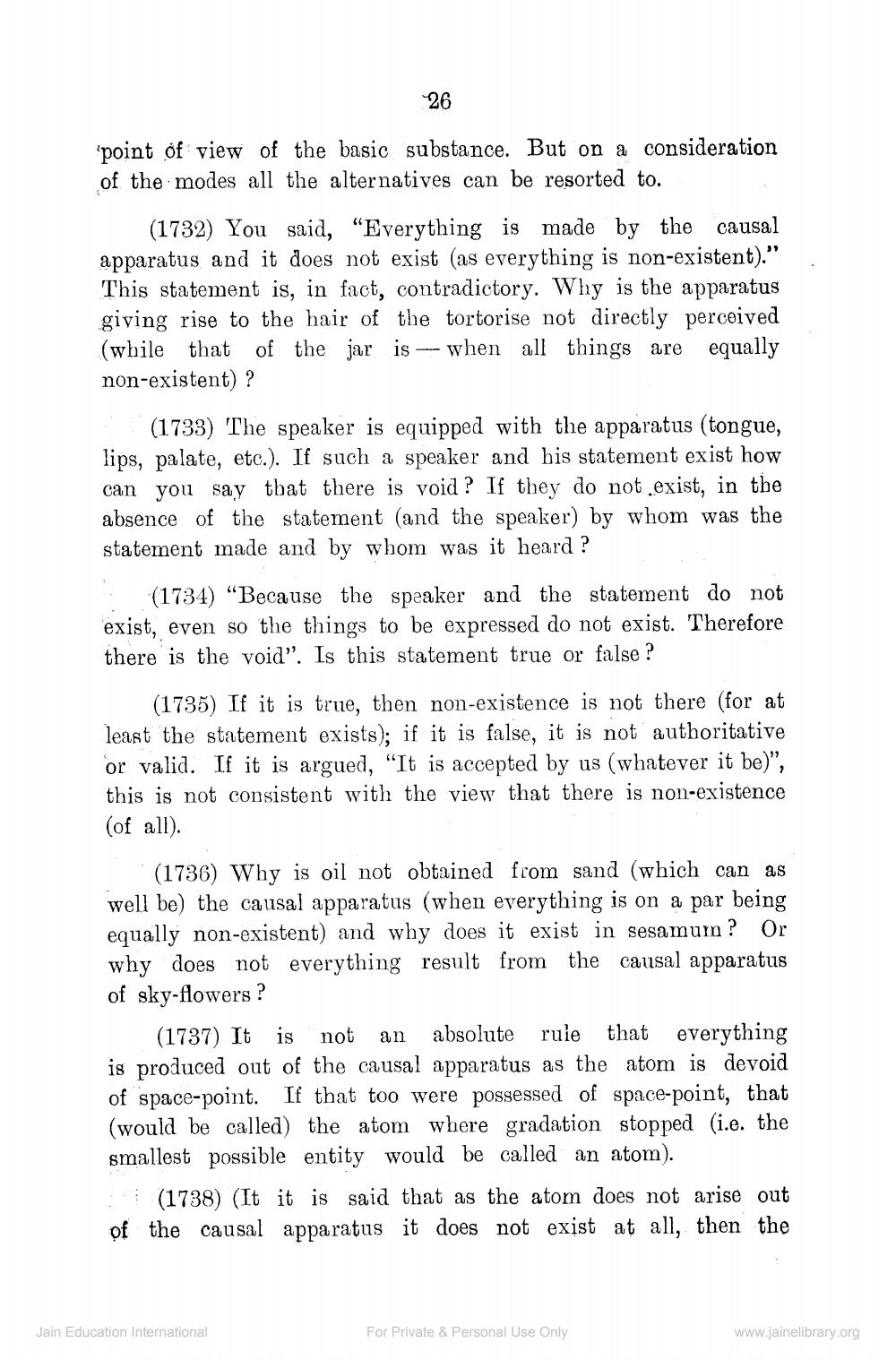________________
26
point of view of the basic substance. But on a consideration of the modes all the alternatives can be resorted to.
(1732) You said, "Everything is made by the causal apparatus and it does not exist (as everything is non-existent)." This statement is, in fact, contradictory. Why is the apparatus giving rise to the hair of the tortorise not directly perceived (while that of the jar is -- when all things are equally non-existent)?
(1733) The speaker is equipped with the apparatus (tongue, lips, palate, etc.). If such a speaker and his statement exist how can you say that there is void ? If they do not exist, in the absence of the statement (and the speaker) by whom was the statement made and by whom was it heard ?
. (1734) “Because the speaker and the statement do not exist, even so the things to be expressed do not exist. Therefore there is the void”. Is this statement true or false ?
(1735) If it is true, then non-existence is not there (for at least the statement exists); if it is false, it is not authoritative or valid. If it is argued, "It is accepted by us (whatever it be)", this is not consistent with the view that there is non-existence (of all).
(1736) Why is oil not obtained from sand (which can as well be) the causal apparatus (when everything is on a par being equally non-existent) and why does it exist in sesamum? Or why does not everything result from the causal apparatus of sky-flowers ?
(1737) It is not an absolute rule that everything is produced out of the causal apparatus as the atom is devoid of space-point. If that too were possessed of space-point, that (would be called) the atom where gradation stopped (i.e. the smallest possible entity would be called an atom).
(1738) (It it is said that as the atom does not arise out of the causal apparatus it does not exist at all, then the
Jain Education International
For Private & Personal Use Only
www.jainelibrary.org




